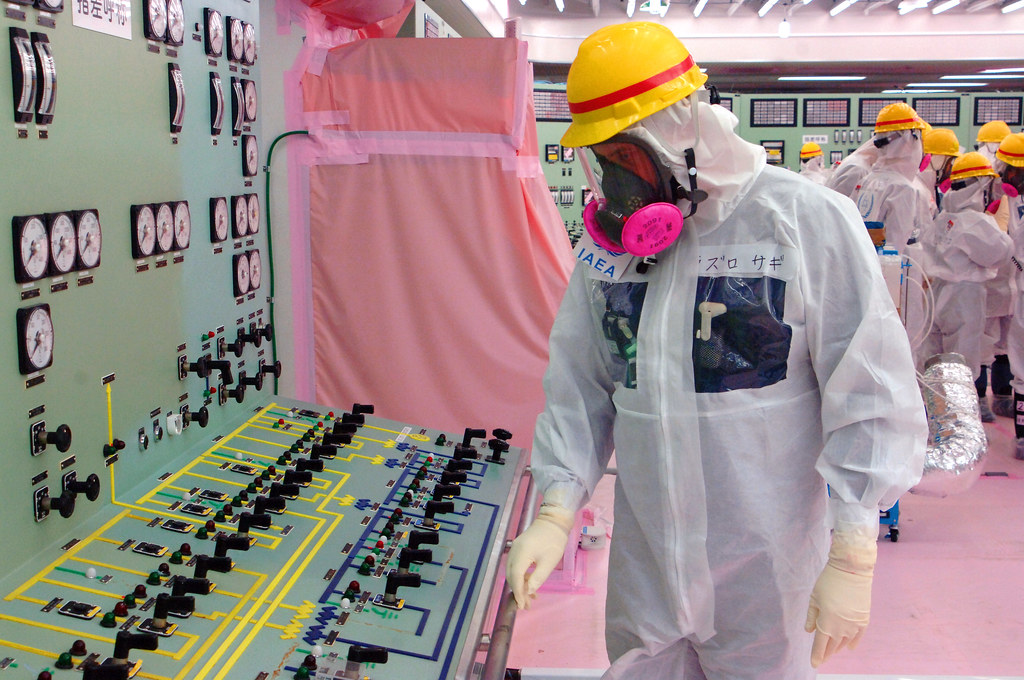Dominican Republic Advances Worker Safety With Second IAEA ORPAS Mission
The Dominican Republic first welcomed an ORPAS mission in 2018, which concluded that its occupational radiation protection systems were "largely in line" with IAEA standards.

- Country:
- Dominican Republic
The Dominican Republic has taken a major leap in strengthening its occupational radiation protection framework, following the successful conclusion of its second Occupational Radiation Protection Appraisal Service (ORPAS) mission conducted by the International Atomic Energy Agency (IAEA). The mission, held from 24 March to 1 April 2025 in Santo Domingo, highlights the country’s unwavering commitment to protecting workers exposed to ionizing radiation in both medical and industrial settings.
This latest mission positions the Dominican Republic as the first country globally to host two full-scale ORPAS missions, underscoring its leadership in aligning national practices with international radiation safety standards. The review was organized at the request of the Dominican Government and hosted by the Ministry of Energy and Mines, reflecting strong institutional commitment to radiation safety as a national development priority.
Building on 2018 Progress: A Continued Journey Toward Excellence
The Dominican Republic first welcomed an ORPAS mission in 2018, which concluded that its occupational radiation protection systems were "largely in line" with IAEA standards. Since then, the country has implemented significant reforms, including:
-
Revised regulations and national guidelines for radiation protection.
-
New guidance for safety assessments applicable to all facilities and radiation-related activities.
-
Enhanced radiation monitoring programmes, with systematic individual monitoring in place.
-
Appointment of qualified radiation protection officers in all relevant facilities.
These reforms were acknowledged by the 2025 ORPAS team, which consisted of six international experts from Argentina, Bosnia and Herzegovina, Brazil, Costa Rica, and Uruguay, supported by two IAEA coordinators.
“The national counterparts we met in the Dominican Republic were highly motivated in strengthening occupational radiation protection,” said Lucía Valentino, ORPAS mission team leader from Argentina’s Nuclear Regulatory Authority. “Their readiness supported our team in delivering a comprehensive and meaningful appraisal.”
Safeguarding 2,500 Exposed Workers Across Key Sectors
With approximately 2,500 occupationally exposed workers — primarily in the medical imaging, radiotherapy, industrial radiography, and mining sectors — the Dominican Republic’s proactive approach is vital for ensuring that radiation exposure remains within safe limits and that protective measures are both efficient and enforced.
During the mission, the ORPAS team assessed the country’s legislative and regulatory framework, the performance of technical service providers (such as dosimetry services and equipment calibration), and the overall implementation of radiation protection programmes across facilities.
“Our country has been an IAEA Member State since 1957,” said Jorge Gómez Núñez, Head of the Radiation Protection Department and ORPAS national coordinator. “Radiation safety and nuclear security remain among our top national priorities for sustainable development in cooperation with the IAEA.”
Strategic Recommendations: Strengthening for the Future
While commending the Dominican Republic’s advances, the ORPAS mission team also outlined key areas for further improvement to achieve even higher safety standards. Recommendations included:
-
Establishing a National Dose Registry to centrally collect and store dose records of workers exposed to radiation.
-
Harmonizing radiation monitoring programmes across various facilities to ensure consistency and comparability.
-
Implementing a national education and training strategy for radiation protection officers and technical personnel.
These steps are crucial for building a sustainable and adaptive radiation safety infrastructure, particularly as the country modernizes its medical and industrial sectors.
“This is a timely intervention that supports long-term safety culture and regulatory capacity,” said Jizeng Ma, Head of the IAEA Occupational Radiation Protection Unit. “The Dominican Republic continues to demonstrate global leadership in occupational radiation safety.”
What Are ORPAS Missions?
The Occupational Radiation Protection Appraisal Service (ORPAS), established by the IAEA in 2001, is a peer-review service that evaluates a country’s systems and practices for protecting workers from radiation exposure. It offers independent assessments of legislation, regulations, and technical infrastructure, including dosimetry, protective equipment, and training.
Reviews are benchmarked against the IAEA’s International Basic Safety Standards and the Safety Guide on Occupational Radiation Protection. To date, over 30 ORPAS missions have been conducted worldwide, contributing to global efforts to safeguard radiation workers and ensure occupational health and safety in nuclear and radiological activities.
Looking Ahead: Dominican Republic as a Regional Model
With this second successful mission, the Dominican Republic not only reinforces its own regulatory systems but also sets an example for other nations, especially in the Caribbean and Latin America, seeking to enhance their occupational radiation protection frameworks.
The country’s commitment to transparency, international cooperation, and continuous improvement aligns with broader goals of promoting safe and responsible use of nuclear technology for health, industry, and energy.
As implementation of the ORPAS recommendations progresses, the Dominican Republic is expected to further embed radiation safety into national development and workplace protection strategies—ensuring safer working environments for thousands of professionals exposed to radiation as part of their vital work.










